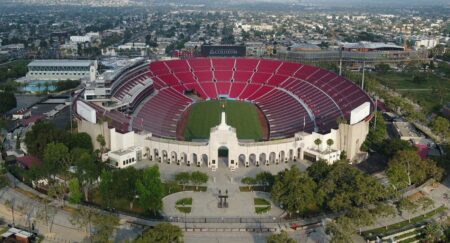The former operations director of UEFA has accused football’s European governing body of presenting “untrue” evidence to an independent review into the events at last year’s Champions League final at the Stade de France in Paris.
Kick-off for the match between Real Madrid and Liverpool was delayed by more than half an hour as thousands of fans remained outside the stadium. Some fans queued for more than two hours, while footage shared on social media showed police using pepper spray and tear gas as supporters tried to scan their tickets at the turnstiles.
An independent report, commissioned by UEFA in the days following the match on May 28 last year, concluded that it was “remarkable that no one lost their life”, with UEFA also stating that the report highlighted a “number of important lessons” about how the organisation of the final could have improved.
Theodore Theodoridis, general secretary at UEFA, issued an apology to Liverpool supporters back in February following the publishing of the independent review, which concluded that UEFA bears “primary responsibility” for the failures. Liverpool described the treatment of its supporters as “unacceptable”, while Real Madrid said that several of its fans were attacked, harassed, assaulted and robbed.
Sharon Burkhalter-Lau, who was UEFA’s operations director during last year’s final, has now accused the governing body of presenting “completely untrue” evidence to the inquiry in order to avoid criticism of its safety and security unit.
The Guardian notes that the independent panel of experts, appointed to review the events, found that UEFA’s events division, led by Burkhalter-Lau, was at fault and not the safety and security unit. The safety and security unit is led by Zeljko Pavlica, a close friend of UEFA president Aleksander Ceferin, and the panel found that the unit had been “marginalised” by the events division.
Memos sent by Burkhalter-Lau to Theodoridis and three other UEFA officials, seen by the Guardian, said UEFA’s evidence that the safety and security unit had been marginalised was “completely untrue”. Burkhalter-Lau attributed the blame to the Paris police and rejected accusations against the events team, adding that Pavlica missed important safety meetings in the lead-up to the final.
In a memo sent to Theodoridis in January, she wrote: “I understand now that there has been an agreed strategy to protect the security unit by stating that all safety and security matters would be communicated via project management, which places the blame for any perceived errors or omissions on Tiziano’s team. Needless to say, it is completely untrue.”
Tiziano Gaier is a UEFA official in the events division and held responsibility for the final operations.
Burkhalter-Lau joined UEFA in 2002 but left the governing body in May ahead of this year’s Champions League final in Istanbul. Pavlica, who has a background in personal security, has served as a security adviser at UEFA since Ceferin was elected president in 2016.
When contacted by the Guardian, UEFA said it set up an “internal working group” following the Paris final. “The group, and UEFA more broadly, had numerous discussions about the events in Paris, some of which reflected the different views internally on the events and actions of that night,” the organisation said.
“Some of those differences were also reflected in the evidence given by various UEFA directors to the panel, evidence that was given in good faith and to the best of the individuals’ knowledge and recollection.”





